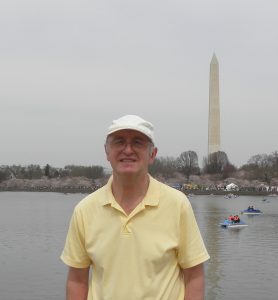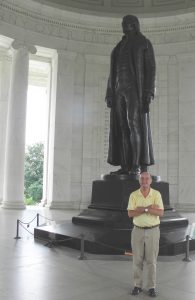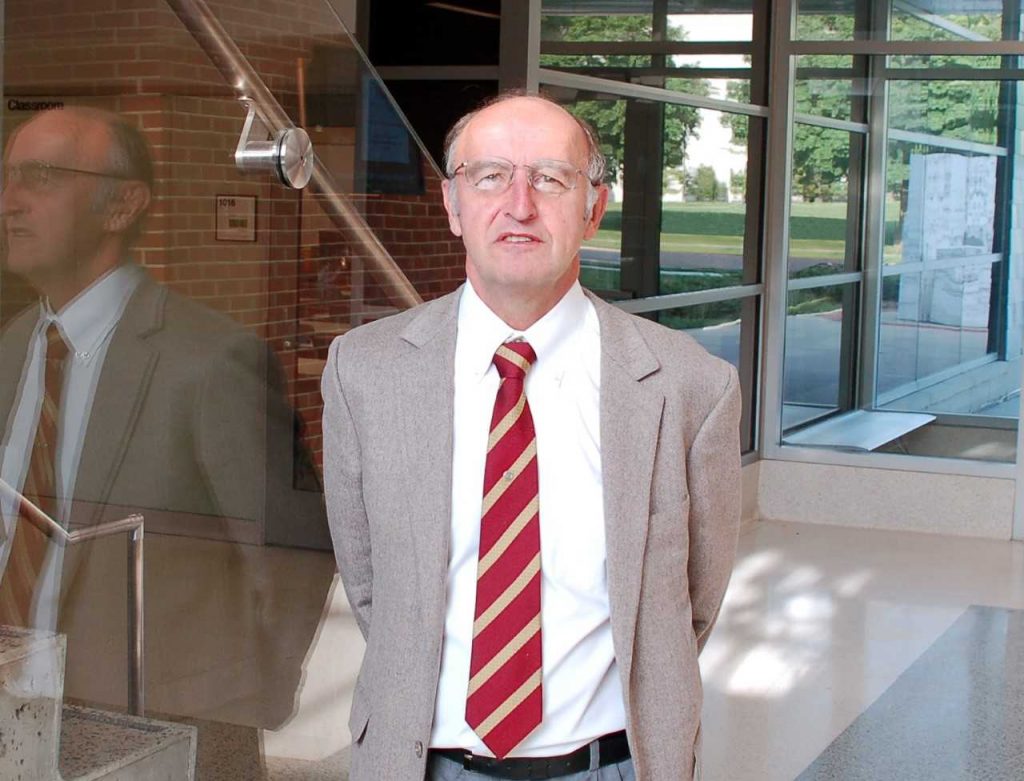Iowa State University’s David Jiles, Anson Marston Distinguished Professor, Palmer Professor in of Electrical and Computer Engineering (ECpE) and Stanley Chair in Interdisciplinary Engineering, recently returned from Washington D.C., where he spent 12 months as a Jefferson Science Fellow with the United States Department of State (DOS) and the US Agency for International Development (USAID).
In what Jiles describes as one of his greatest professional experiences, he spent time working on securing the nation’s electric power supply and distribution, as well as looking at the impact of foreign governments’ policy decisions on world markets.
To prepare for his fellowship, Jiles had to familiarize himself with many examples of recent cyber-physical attacks on installations around the world, and he gained a better understanding of how technology can be used to advance foreign policy goals.

“This was something new for me, but I had excellent help from colleagues here at ISU,” Jiles said. Engineers in Iowa State’s ECpE department, including Mehl Professor and Associate Department Chair Manimaran Govindarasu, have been studying cybersecurity of the modern power grid and have developed innovative cyber-physical system security solutions using game theory.
Back in Washington D.C., Jiles developed a triage tool to assess cyber-physical vulnerability of electric power installations, and he studied cyber-physical perspectives on nondestructive testing and the internet of things (IOT).
“The nation needs more secure and more efficient distribution of electric power, with improved cyber-physical security to prevent cyberterrorists taking control and disrupting the supply of electric power,” Jiles said. “Nondestructive testing of physical infrastructures will reach greater heights through a marriage with the IOT. However, the potential for cyberattacks will continue to increase as the industrial internet grows and becomes more complex. Nevertheless, the benefits of remote/automated monitoring of critical infrastructures outweigh the costs, so maintaining the IOT against cyberterrorists means that cyber-physical security will be a continuing major concern for governments worldwide.”

In December 2015, Ukraine was hit with a cyberattack that hijacked and took down dozens of power substations across the western part of the country, leaving 230,000 Ukrainians without power for many hours in the middle of winter. Jiles suggested that U.S. officials working to promote international cybersecurity should visit Iowa State to learn more about mitigating these attacks in the future. Therefore, in September 2017 on Iowa State’s campus in Ames, Iowa, ECpE cybersecurity researchers presented two days of demonstrations and case studies to help four Black Sea countries (Ukraine, Moldova, Georgia and Armenia) fight off cyberattacks. This workshop was part of a study tour sponsored by USAID and organized by the National Association of Regulatory Utility Commissioners. Govindarasu, along with University Professor Doug Jacobson, demonstrated the test bed called “PowerCyber,” which is designed to do vulnerability analysis, risk assessment, attack-defense evaluations and other tests.
“A lot of this is just trying to keep one step ahead of the cyber terrorists,” Jiles said at the time. “If you don’t, someone will figure out how to hack into our systems, and we’ll have problems.”
Before he left for Washington D.C., Jiles said he was looking forward to serving the Department of State and USAID. Now that he has returned, he said he enjoyed meeting many interesting people in different areas of expertise, as well as attending lectures, workshops and professional meetings. He said he looks forward to including “discussions of the interplay between science/engineering and government policy into my classes and student mentoring. I will also be able to support these discussions with real-world examples.”
To anyone looking to join the Jefferson Science Fellows (JSF) Program, which runs for 12 months from August to August each year, Jiles said, “I would highly recommend the JSF program to anyone interested in the interplay of science/engineering and government policy. It would be good to have more representation from ISU among the Jefferson Science Fellows. We have had four Jefferson Science Fellows over the years that the program has been running, but Purdue University has had 13!” He also advised getting security clearance applications in early, as the process can take a long time to complete, and you cannot work on site without a clearance.
The JSF program is administered by the United States National Academies of Sciences, Engineering, and Medicine and is supported through a partnership between the U.S. academic community, professional scientific societies, the DOS and USAID. The fellowship is open to tenured faculty from institutions of higher learning and was established in 2003 to further build capacity for science, technology and engineering expertise within the DOS and USAID. For more information on the program, click here.
